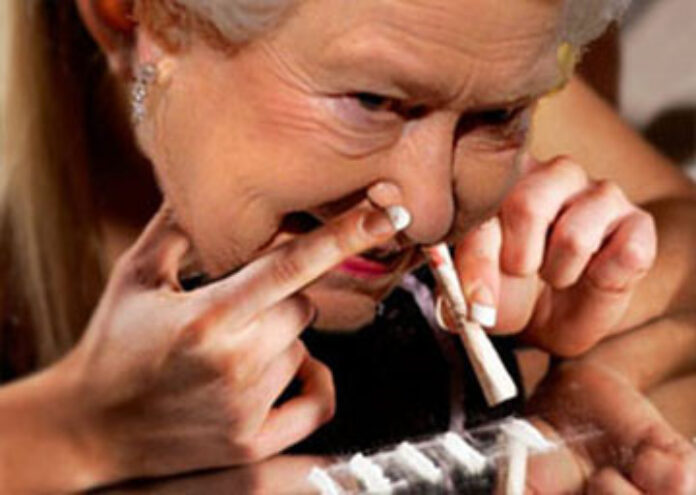The historic moment of the legalisation of drugs brought traffic to a standstill across the country as thousands of motorists stopped in the streets to honk their horns and show their appreciation of the landmark ruling.
“I’ve never seen anything so beautiful. Every man and woman and child got together in the streets hugging each other,” John Swiddle, 43, a carpenter from Harlow, Essex told the BBC.
There was true happiness as the decriminalisation of class A drugs finally was brought into reality and people started to rejoice in the streets.
The Treasury is also rejoicing today as the VAT that will be added to the Class A drugs will ensure Britain’s economic recovery many times over.
It is estimated that drug tax could bring the Treasury over 2.8 trillion pounds per annum, not including other revenue streams like taxation of drug suppliers and other periphery industries.
“It is not only great for the government’s tax receipts but also good for the eradication of drug dealers and drug gangs that have blighted our cities for so long. From now on, Britain has entered the 21st century where citizens will be given the choice of what they want to do. If you want to inject heroin, smoke opium, make hash brownies or snort cocaine, then you will be free to do so. If you want to take an LSD tab or some peyote, please do, you will love it, and as long as we get the value added tax, then we will be happy to see you smoke that Camberwell carrot,” Prime Minister, David Cameron told ITN news on Thursday.
Just as there is an alcohol limit when driving a motor vehicle or operating complicated machinery, so too will there be new laws drafted in that will deal with safety issues.
“Naturally there will have to be elements of safe use for workers who are in positions of responsibility. We can’t have aeroplane pilots, for example, chasing the dragon whilst flying to Adis Abbaba, or bus drivers smoking crack pipes in between stops. That kind of thing will, of course, have to be regulated, as already alcohol is regulated to some degree,” Ernest Penderwatt, a civil servant working on the new drug legalisation white paper told the Economist magazine.
The Chancellor, who is at the forefront of the new drug legislation, was not available for comment today as he was too busy staring at the beauty and intricate cosmological composition of a water droplet coming down his window pane in his study.







